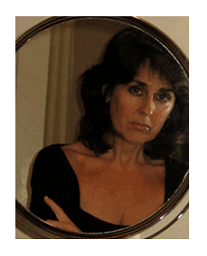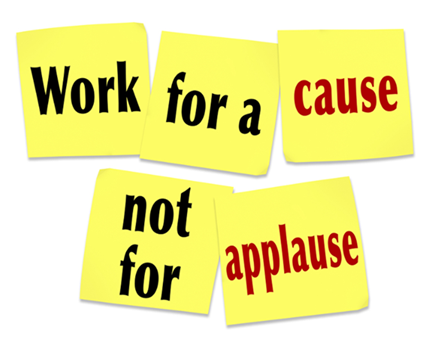I have never explicitly thought about my relationship with myself. Does that sound odd? The pairing of me with, well… me?
 Don’t we often ponder how to do a better job of finding and keeping good relationships with other people? Why is it that we read (and write) so much about a healthy relationship with a friend, a family member, a romantic partner – but we don’t grant the same time and thought to how we address, perceive, and treat ourselves?
Don’t we often ponder how to do a better job of finding and keeping good relationships with other people? Why is it that we read (and write) so much about a healthy relationship with a friend, a family member, a romantic partner – but we don’t grant the same time and thought to how we address, perceive, and treat ourselves?
When it came to the sort of man I hoped to pair up with, in my twenties, naturally, I had a vague checklist of sorts: smart, funny, multilingual, nerd tendencies a plus, and yes, at the time, I insisted on tall.
By my thirties I had a better understanding of the importance of both skills and practicalities – communication, respect, similar libido; our approach to time spent together as well as apart. And it wasn’t until after divorce that I fully understood the critical nature of common values.
It wasn’t until yesterday, strangely enough, that I thought about my relationship with myself.
Building a Relationship With Your “Self” Means…
A relationship, by definition, is the way two or more concepts, objects, or people are connected. When we think about interpersonal relationships, it’s out manner of communication, respect, enjoyment, shared time, and handling conflict. Relationship also involves our body of expectations – how others will deliver what we want – and how we react when those expectations are met or not.
As for the relationship with our “self” –
- Don’t we all have some amount of ongoing inner dialog?
- Don’t we enjoy spending time alone – or avoid it?
- Don’t we sometimes praise ourselves, at other times kick ourselves, in some arenas nitpick endlessly?
- Are we showing respect? Are our expectations reasonable? Is our communication constructive or cruel?
- Are we unforgiving of our mistakes, or lazy in pushing ourselves to change for the better?
Shouldn’t we ask these questions? Shouldn’t we act on the answers?
Reflections in a Very Personal Mirror
That I use writing to explore human motivations and behaviors is obvious. That I pluck pieces of my own experience to do so is also self-evident. Yet my introspection is often about what I want to accomplish or a problem I’m trying to solve. For example, I want to be as healthy as possible for as long as possible – and share the information that I acquire. I want to improve my relationships with others, and again, share what I learn in the process.
My introspection isn’t really about “who I am” – I know who I am – and it certainly isn’t about how I treat myself.
About 10 days back I went through a writing exercise – a self-assessment in which I was tasked to look in a mirror and reflect on what I saw.
 I anticipated seeing signs of growing older that would bother me, echoes of lost opportunity that would provoke melancholy, and possibly some of the more upbeat and mischievous facets of who I am “in real life.”
I anticipated seeing signs of growing older that would bother me, echoes of lost opportunity that would provoke melancholy, and possibly some of the more upbeat and mischievous facets of who I am “in real life.”
While I decided to more or less allow whatever bubbled up to take its course, I didn’t anticipate the revelation that my observations would lead me to: how little time I give to the relationship with myself.
Sure. There’s inner dialog like “eat more fruit” or “be especially sexy this weekend” or “polish those verbs on the articles drafted for XYZ.”
More telling are the admonitions like “dammit, why didn’t you think of that?” or “how could you make that mistake in judgment?” or “why can’t you work faster?” – despite knowledge of my productivity and (admittedly) excessive work ethic.
I am harder on myself than I would ever be on friends, colleagues, kids, loved ones. That isn’t the person I want to be with and for myself.
What Do You Want From Yourself as a Person?
Some years back I mused on what I really wanted in a relationship – finally, from an adult perspective that includes a “me,” a “him,” an “us” and a thorough understanding of what give-and-take really involves. It was a helpful mechanism for organizing my thoughts around what truly matters in a relationship – with another person.
But I’ve never done the same for myself.
I’ve set targets relative to raising my sons, professional and personal goals around writing, social media, marketing, publishing, money, health and areas of interest. But there were no objectives to silence the critical voices, to shut down the negative noise, to reason with excessive expectations.
We’ve all heard pop culture wisdom that we need to love ourselves before we can love others. Honestly? I’m not entirely sure that’s the case, but I do believe we can love others more joyfully and successfully if we respect ourselves and expect to get as good as we give.
In “Six Ways You Can Have a Healthy Relationship With Yourself,” Margarita Tartakovsky, MS, writes:
… we don’t hear nearly as much about the most important relationship in our lives: the one with ourselves… A healthy self-relationship is the ability to value yourself as a person, and embrace your strengths and weaknesses…
Among other things, it includes caring for your basic physical needs (something I forget too often – typical of mothers, I think), making time for yourself (I also get failing marks here), and exploring your inner world – your thoughts and feelings.
Work for a Cause, Not for Applause… But…
Growing up I learned to throw my efforts into ideas, output, achievement. My narcissistic mother tended to take credit for anything in her proximity, so focusing on the work itself was a reasonable strategy for me. “Work for a cause, not for applause” is equally a part of my adulthood, which doesn’t mean I don’t enjoy a pat on the back or recognition of my work – but note, it’s about the work – not me.
That’s partly because I can believe good things about the work I produce, but it’s a tougher sell when it comes to believing good things about myself. How’s that for a better-late-than-never epiphany, one I’ve danced around for years, but not stated quite so clearly?
The woman in the mirror?
Like too many of us, she busies herself with tasks, she discounts the need to pay attention to the healthiest psychological self, and she needs – I need – to be aware of my own value, more willing to embrace my good points over the bad, and strong enough to tell the negative voices to take a hike.
Work for the cause? I believe that with all my heart. But the cause needs to include a healthy relationship with myself – including kinder communication, self-respect, and not just paying them lip service. After all, without action, it’s just an exercise in navel gazing.

You May Also Enjoy
Hello DA,
Humm … I think that speaking of a relation with oneself is more or less a commodity of language, a relation is really about what is linking two different elements, two different persons, with the specificity that A react to properties in B on which he has no action.
Anyway, it remains that some people seem to relate badly to themselves. And If I was asked on the way I see it, I’d say that feeling good with oneself need to:
– Know who we are.
– Know what we want.
– And liking ourselves.
None of these three being so easy than it seems at first sight.
About knowing who we are, there is a wonderful French book by the behaviorist biologist Henri Laborit and that I always advise to read. Its called “L’éloge de la fuite” (“The praise of fleeing” ?). You can read it DA, but I’m not so sure that your audience can, because I don’t know if it has been translated?
The interesting and striking thesis of Laborit is that as any other living beings in the animal realm (to which we belong) we mainly live for ourselves, and all of our actions are based on the simple principle of seeking pleasure and avoiding pain, ….
Wonderfully introspective post. Too often I look in the mirror only to see tired eyes, an aging body and reminders of everything I haven’t done. And I know that’s not really who I am. We all need to learn how to love ourselves and cut ourselves a little slack!
It’s so much easier to focus on the ways that we ‘don’t measure up’ rather than appreciating what is unique about ourselves.
Although I have a Journalism degree and a knack for writing, I am just now finding my own voice in my words and getting the nerve to hit the publish button on my WordPress blog. I finally am learning how to put myself ‘out there’ without worrying so much about other peoples’ opinions of what I write or say.
I’ve been all over the web this morning – trying to find the kick I need to be positive, focused and find an inkling of energy. I may be depressed. I’m certainly lethargic and beating myself up for not being disciplined. Landing and reading here is the most helpful spot I’ve found because really, if I’m lacking focus or energy, enthusiasm or motivation – it does start with how I feel about and speak to myself. What about myself am I focusing on each day? How do I want to speak to myself? This feels like groundwork to me. Thank you D.A. I’m going to follow the link you’ve included.